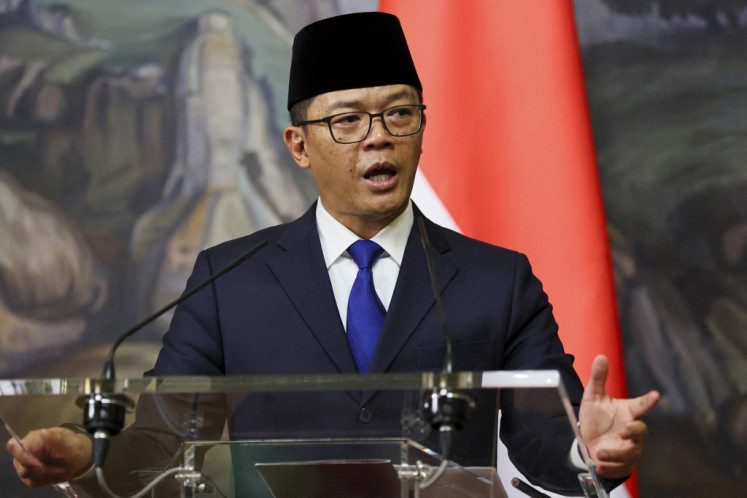Popular Reads
Top Results
Can't find what you're looking for?
View all search resultsPopular Reads
Top Results
Can't find what you're looking for?
View all search resultsCommittee to speed up replanting process
As replanting programs have been dogged by technical issues, Indonesia’s palm oil fund will set up a special committee to identify the eligibility of aid recipients starting from early next year
Change text size
Gift Premium Articles
to Anyone

A
s replanting programs have been dogged by technical issues, Indonesia’s palm oil fund will set up a special committee to identify the eligibility of aid recipients starting from early next year.
Begun in 2015, the program is critical to boost the productivity of the crop in Indonesia, the world’s biggest palm oil producer, which is now hampered by a huge number of old trees.
However, its implementation has been hampered by several issues, such as a lack of land certificates and difficulties in determining the criteria of small growers.
Until now, only Rp 16 billion (US$1.18 million), or 4 percent of the overall Rp 400 billion of allocated funding, has been disbursed, according to the Indonesian Palm Oil Estate Fund (BPDP).
In terms of coverage, it only applied to 640 hectares, a miniscule portion of the total 1.5 million ha to be funded.
While a government project to help certification is underway, an enormous task awaits as a result of the massive areas still to be replanted, BPDP president director Bayu Krisnamurthi said.
A pilot project has been run by the Agrarian and Spatial Planning Ministry to certify 1,000 lots spanning 25,000 hectares to support the program.
“The certification project could cover 25,000 hectares next year but we have 1.5 million ha that need replanting. We cannot wait that long so we’ll set up a special committee to identify if a grower is eligible to get the funding while the certification program is being carried out,” Bayu said on the sidelines of the 12th Indonesia Palm Oil Conference and 2017 Price Outlook (IPOC) on Thursday.
Bayu further stressed that the eligibility of growers to access the cash assistance as determined by the committee was only meant to speed up replanting, but would not exempt them from the requirement to possess land certificates.
With the revitalization move, the fund, which manages the levies from crude palm oil (CPO) exports, is slated to channel Rp 25 million each to small growers with plantations up to 4 ha.
At present, local plantations can only produce 2.6 tons of palm oil per ha, less than their rivals in Malaysia, which yield 4 tons per ha. Raising productivity is necessary to help Indonesia produce 40 million tons of palm oil by 2020, up from 20 million tons today.
Indonesian Oil Palm Smallholders Association (Apkasindo) secretary Asmar Arsjad acknowledged that only a tiny fraction of growers currently owned land certificates. Of 4.8 million ha managed by 2 million smallholders, only 1 percent was certified.
“Most of us buy it [the land] without proper documents or we buy it from others, but we don’t change the name of the certificate holder despite the land ownership having changed many times,” Arsjad said in reference to the many land-entitlement issues.
To tackle the large number of land-ownership problems, the government is now developing an integrated map to determine land usage.
Agrarian and Spatial Planning Minister Sofyan Djalil said that many farmers had converted their farmland into oil palm estates and such a one-map policy could help avert overlapping permits issued by different authorities at the central and regional level.









